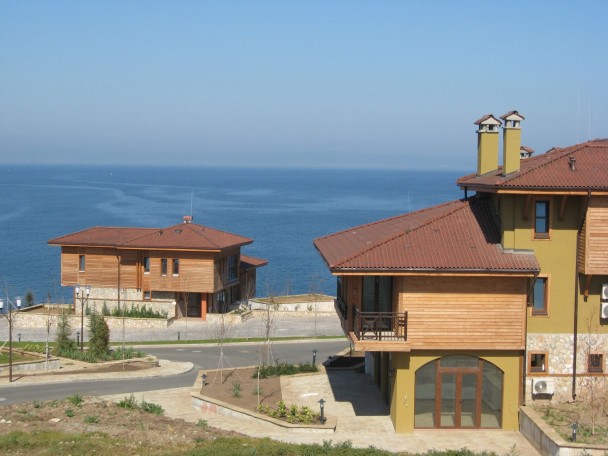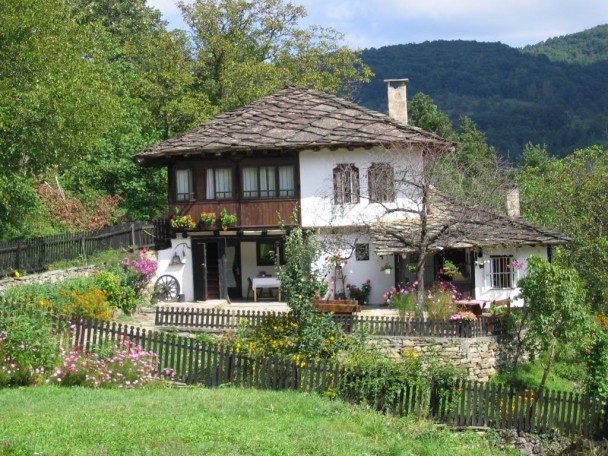Handing Over the Bulgarian Property
- on 07.07.11
- Bulgarian properties articles
- No Comments
After completing the deal in Bulgaria, the property sellers sometimes are given up to a month to finally vacate the property in Bulgaria. That is why often in the notary act (and the preliminary contract) is mentioned a small amount of money to be held back until the official handing over of the Bulgarian property. There are penalties imposed on the property seller if they do not meet this obligation.
Under-declaring the Purchase Price when buying a property in Bulgaria
There remains a tradition in Bulgaria of under-declaring the price actually paid fora property when signing the notary act.This subject was touched on earlier, in relation to the preliminary contract. There are a number of reasons Bulgarian properties are under-declared. The advantage for the buyer (assuming that they are paying all of the transfer taxes, which is a common assumption in Bulgaria) is that the Bulgarian property taxes and notary fees payable are lower, since they are based on whichever is higher between the tax evaluation or the stated purchase price in the title deed. The advantage for the seller is lower income tax, or if the seller is a company then the reduced ‘official’ income will reduce the profit and therefore the corporate tax it has to pay. In cases the property seller inherited the property, he/she will not have to pay tax profit regardless how high is the amount that is stated in the title deed.

Apart from the fact that under-declaring the price is somewhat illegal, generally speaking, the short-term advantage of lower property-tax payments is greatly out-weighed by the fact that in the future, unless you are able to also put a lower price in the notary act when you sell, you will face a larger tax burden, since on paper it will look as if you have made a lot of money.
Take for example a property you buy for β¬50,000. The tax evaluation on that property is β¬10,000 (tax evaluations are historically very low in Bulgaria, although they are rapidly increasing). You sell this property in two years time for β¬80,000 and put that price in the notary act when you sell. If you declared in the original deal that you paid β¬50,000 for the property then your monetary gain is β¬30,000. You will then incur income or corporate tax on this sum. If however you under-declared and wrote that you paid β¬12,000 (most people who under-declare put a value slightly above the tax evaluation) then your monetary gain on paper is β¬68,000. You will then be facing a much bigger tax bill, and any gain you might have got from paying less property tax initially when you purchased the Bulgarian property will be wiped out.

It should be pointed out that in some instances you will not pay any taxes if you sell your property as an individual, and the issue of what price you put in the contract become irrelevant.
So why are so many deals in Bulgaria completed on an under-declared price? Generally speaking, the reason is because the sellers insist on doing so. They will simply refuse to sell to you if you insist on declaring the full value. This is also true in the case of most major developers selling off-plan apartments in Bulgaria. It often seems strange that the owners of village houses in Bulgaria, which are often exempt from any tax burden because they have been owned for over five years, still insist on putting a lower price in the contract. If you find a good lawyer they are sometimes able to pursue Bulgarian property sellers to change their minds by demonstrating that they would not have to pay tax. You may find that a seller will agree with you about putting the real-price but insist on you paying any additional taxes that might be due to pay because you have inserted the real price.

The government recently uniformly increased tax evaluation values by about 10 per cent so as to recoup some of the tax revenue the state is losing to the practice of under-declaring. It is likely that in future further steps will be taken to stamp out the practice.
Steps after Signing the Notary Act
Once the notary act has been signed by the parties and the notary, the ownership has been transferred to the buyer. But more needs to be done to secure the right of ownership. It is necessary to register the notary act with the Registry Agency local to the property. This is done by the notary and it must be done on the same day. This is extremely important. Even though you become the rightfulΒ and legal owner with the actual signing of the notary act, it is the registration that makes the deal public. For example, if the deal is not duly registered an unscrupulous seller may try resell the property to another buyer, who will check at the Registry Agency and believe the original seller is still the owner.
After you receive your original notary act, duly signed and registered, you have two months from the date of signing the act to declare that you are the new owner at the local tax department where the property is situated. With that declaration you describe your property and inform the authorities that you are the new owner. The declaration will form the basis on which you will be charged your annual property tax . If you do not declare the property by submitting the tax declaration within the two-month period from signing the deal, you may pay a fine for the delay.
Another important action to be done after completing the deal, introduced in the last few years, is to register the buyer as a foreign individual or foreign legal entity with the Bulstat Registry. There you will then receive a unique identification number in Bulgaria for statistical and tax purposes. This only applies if you have not been registered before as a foreign individual or foreign legal entity, and does not apply if you are buying through your Bulgarian company. If you are registered already, and you are buying a second property, then you only need to notify the Registry Agency-your original Bulstat identification number will be the same. The term for registration is seven days from completion, and there may be a fine if you are late.



Leave a Reply
You must be logged in to post a comment.